The foods we eat every day generally provide nutrition and enjoyment. However, some ingredients can become lethal if we don’t handle or cook them correctly. Even with access to a fully stocked pantry, we must exercise caution with particular items that can pose significant health risks when consumed raw or in excess.
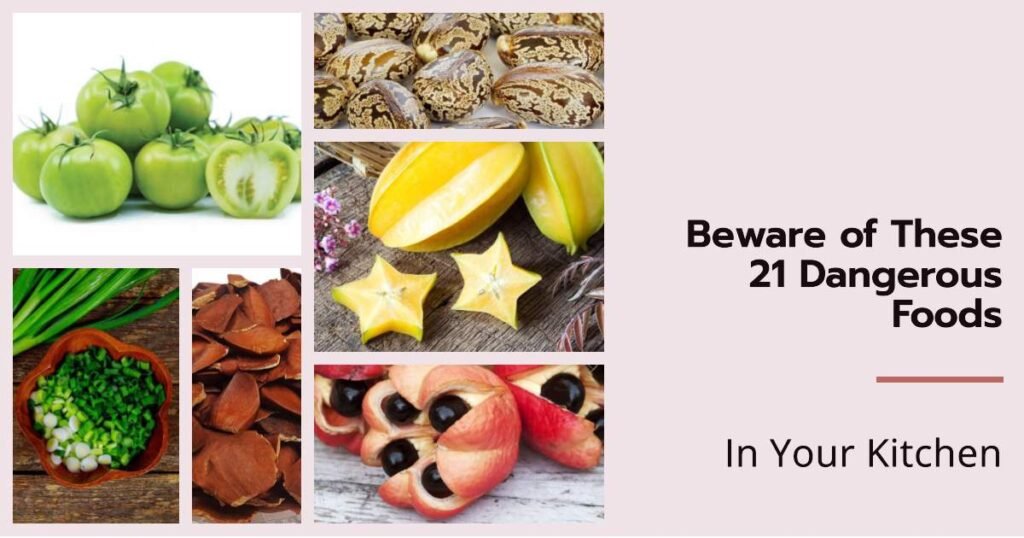
This article explores 21 such dangerous but popular foods routinely found in home kitchens that can be fatal if not prepared using proper techniques. Being aware of these risks can help ensure we continue enjoying meals safely.
1. Raw Kidney Beans
Kidney beans are a nutritious legume rich in plant-based protein. However, consuming them raw can cause severe nausea, vomiting, and diarrhoea. Raw kidney beans contain lectin phytohaemagglutinin, a type of protein that can be toxic. Proper boiling neutralizes lectin, making the beans safe to eat. Insufficient soaking and cooking can leave small amounts of lectin intact. Just four or five partially cooked beans can trigger symptoms. So remember to boil kidney beans vigorously for at least 10 minutes before serving.
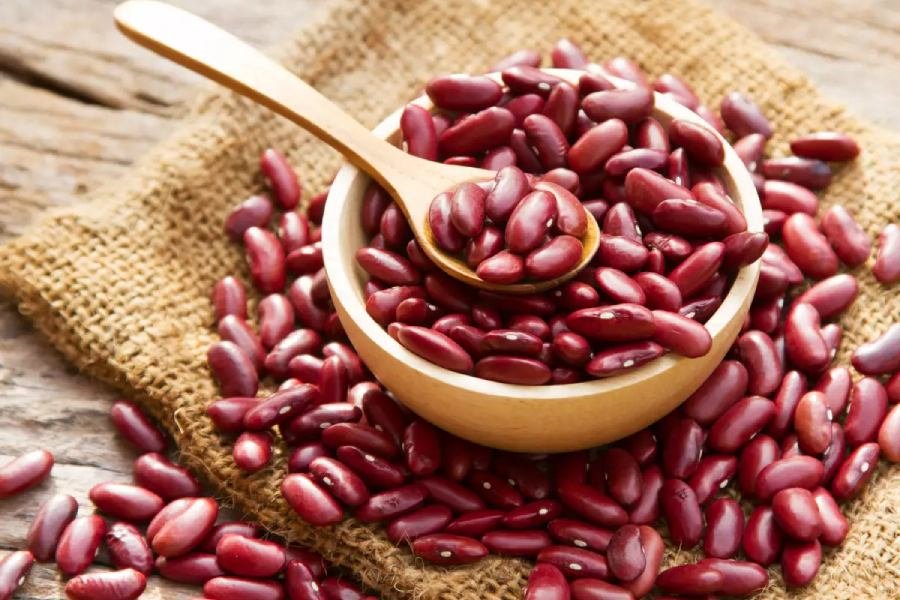
2. Rhubarb Leaves
Rhubarb stalks make for a tasty pie filling or compote. However, its green leaves contain poisonous substances called oxalic acid crystals. Consuming the leaves can lead to burning sensations in the mouth and throat, difficulty breathing, nausea, vomiting, and even renal failure. The stalks contain only a very small amount of oxalates, but it’s still advisable to remove the leaves before cooking rhubarb.
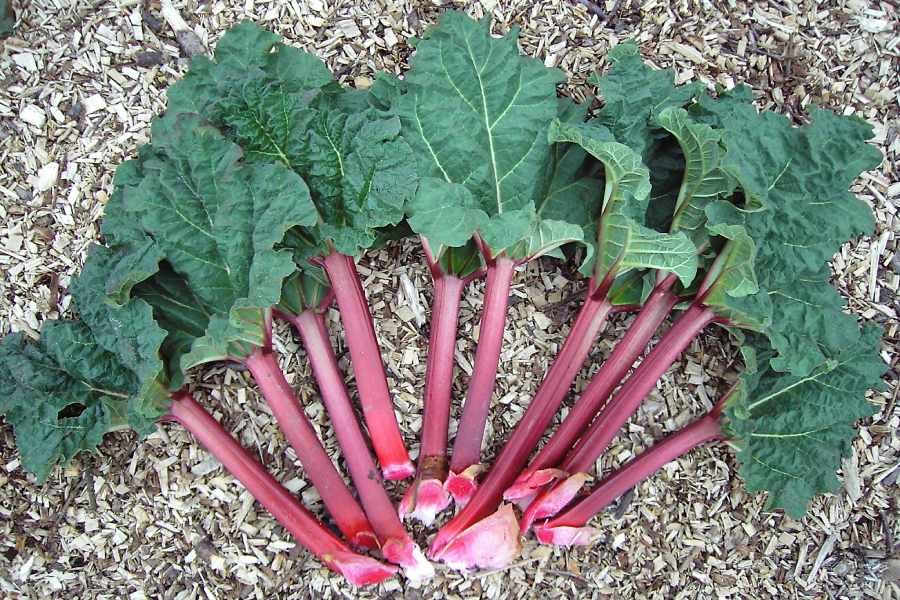
3. Green Potatoes
Potatoes are a starchy staple in many cuisines. But potatoes that have turned green contain a dangerous toxin called solanine. This glycoalkaloid poison develops when potatoes are exposed to too much light. Green spots should be cut away before cooking, and heavily green potatoes should be discarded. Do not eat potato shoots or leaves either, as these also contain solanine. Properly stored, peeled, and cooked potatoes are safe to eat.
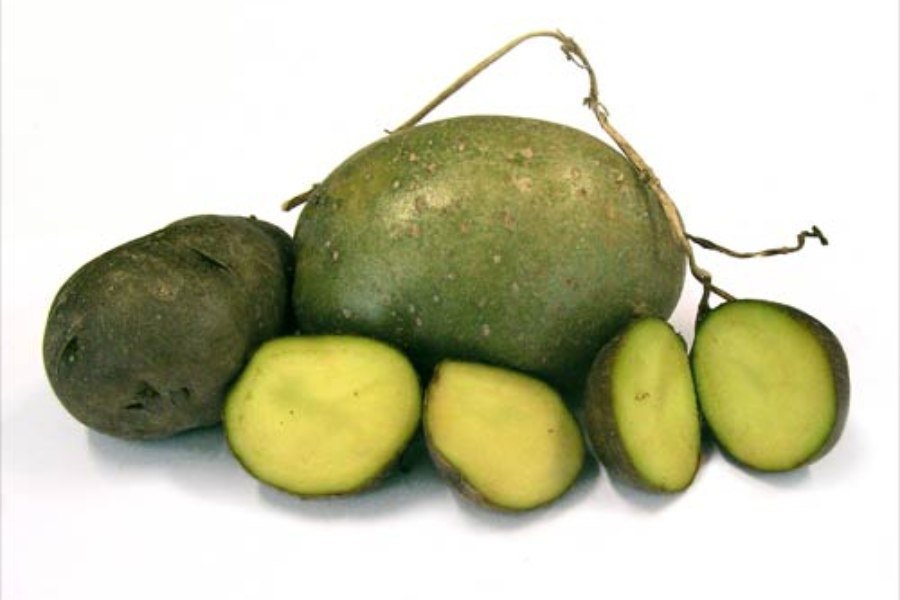
4. Raw Sprouts
Sprouts like alfalfa, mung bean, and soybean can harbour Salmonella, E. coli, and Listeria bacteria. The warm, humid conditions needed for sprout growth also enable pathogen growth. Cooked sprouts are safe, but children, the elderly, pregnant women, and those with immunity issues should avoid raw sprouts. Alternatively, opt for safer microgreens, which pose less risk.
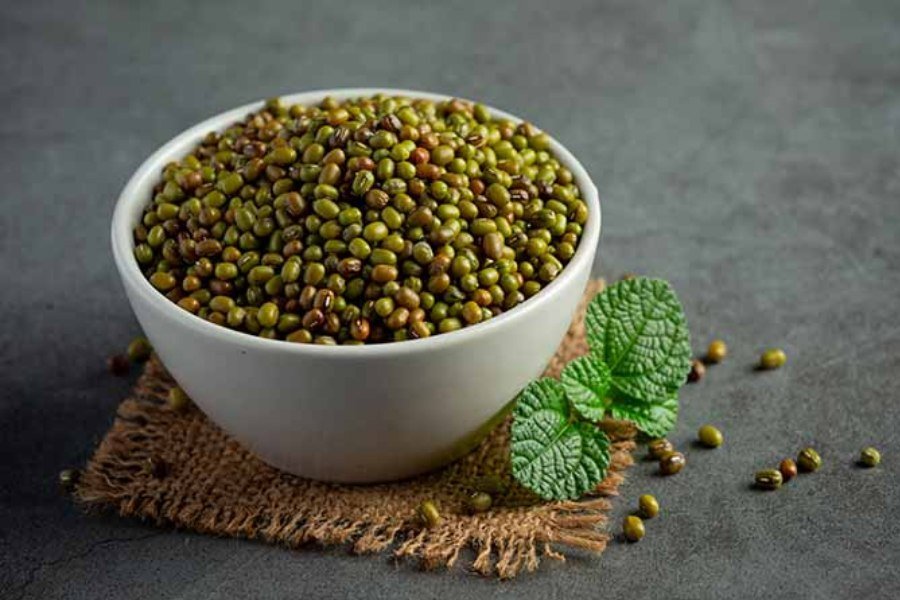
5. Ackee Fruit
Popular in Jamaican cuisine, ackee fruit turns bright red when ripe. But unripe or incompletely ripe ackee contains hypoglycin A and hypoglycin B toxins. These cause “Jamaican vomiting sickness,” with symptoms like severe vomiting, hypoglycemia, and potential neurological issues. Canned ackee has been pre-cooked to eliminate toxins, but fresh ackee must be boiled thoroughly until the arils open fully. Discard seeds and the surrounding membrane before eating.
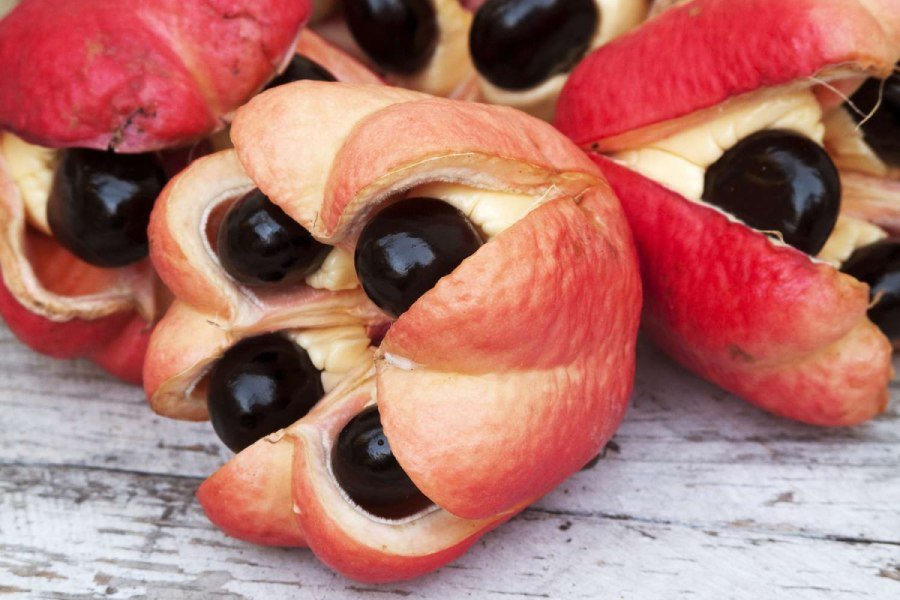
6. Nutmeg
Nutmeg is a fragrant spice perfect for pumpkin pie. But consuming just one or two whole nutmegs can trigger seizures, hallucinations, and agitation as it contains myristicin, elemicin, and safrole. Don’t go overboard when grating spices by hand. Signs of toxicity usually appear quickly, within three hours. Seek immediate medical assistance if someone accidentally ingests excessive raw nutmeg.

7. Starfruit
Also called carambola, starfruit has an appealing tart, juicy flavour. However, it contains neurotoxins that can trigger severe neurological effects in those with kidney disease. Oxalates and caramboxin in starfruit can cause hiccups, vomiting, mental confusion, seizures, and even death in vulnerable individuals. People with renal disorders should avoid starfruit, but it is usually safe for others when consumed moderately.
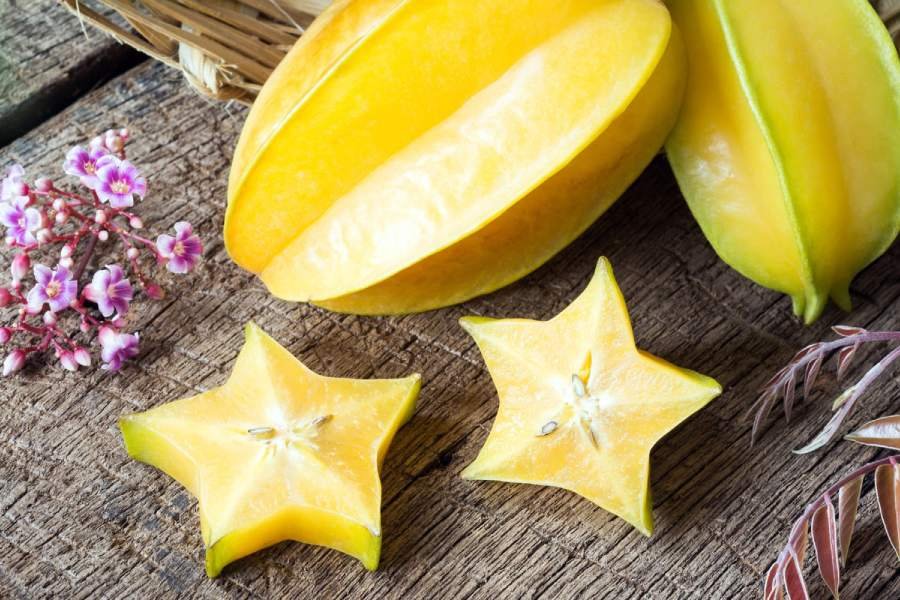
8. Tomatoes – not the fruit
Tomatoes are the basis for countless recipes from pizza sauce to ketchup. Tomato fruits are very healthy, being packed with lycopene. However, tomatoes belong to the nightshade family, meaning their stalks, leaves, and stems (but not the fruit) contain alkaloids like atropine, which can cause nervousness, headaches, and stomach pain when ingested. Never brew tea from tomato leaves or eat dishes containing tomato foliage.

9. Rhubarb Stalks
As mentioned earlier, rhubarb leaves are toxic. But even the tender pink stalks can’t be eaten raw. They contain soluble oxalate crystals that cause a sharp, burning feeling in the mouth and throat. This reaction can extend through the digestive tract, causing vomiting and even kidney damage in high amounts. Always cook rhubarb stalks with sugar to counteract oxalates before eating.
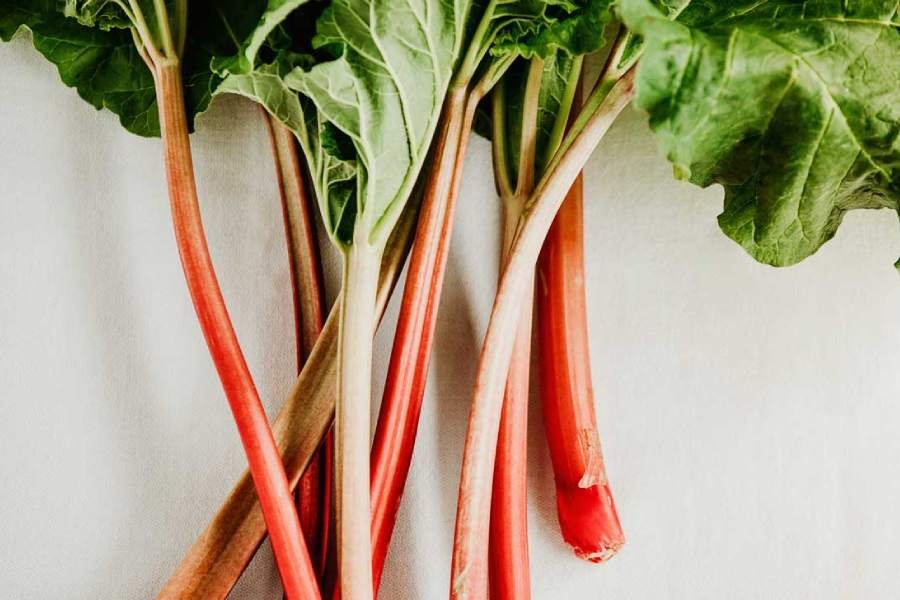
10. Castor Beans
The ornamental castor bean plant produces large, attractive seeds. But inside those seeds is ricin, an extremely potent toxin. Just one or two milligrams is enough to kill an adult, making ricin more poisonous than cyanide. Castor beans must be cultivated and processed carefully into castor oil, with no ricin residue remaining. Avoid ingesting ornamental castor beans at all costs.
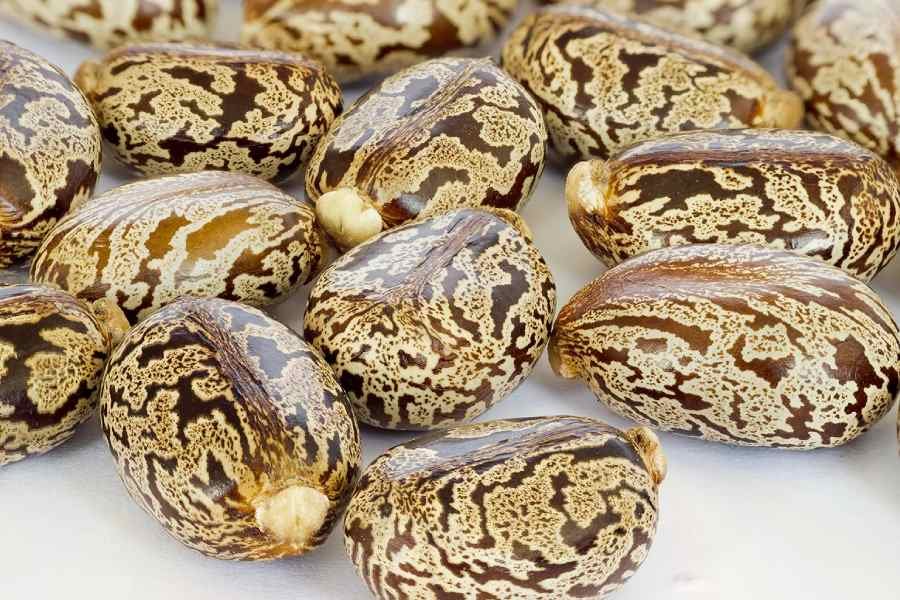
11. Cherries
Sweet cherries are an antioxidant-rich summer treat, but their pits contain hydrogen cyanide. Chewing or crushing the hard pits releases this poisonous compound. Swallowing a few cherry pits whole is unlikely to cause harm, but chewing even a couple can lead to vomiting, dizziness, difficulty breathing, and if untreated, death. Teach children to spit out pits and avoid cracking them to extract the inner kernel.
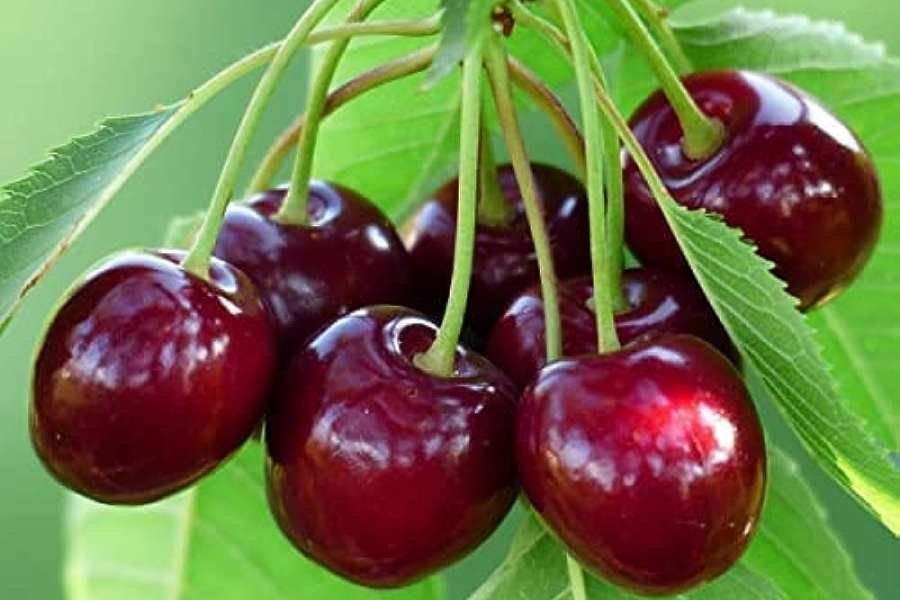
12. Apple Seeds
Much like cherry pits, apple seeds also harbour traces of cyanide within their bitter kernels. While the edible flesh is an excellent source of vitamin C and fibre, resist the urge to snack on apple seeds. Crushing or chewing enough seeds can result in cyanide toxicity. Small amounts of seeds swallowed whole will safely pass through the digestive system. But avoid making apple seed tea or extracts.
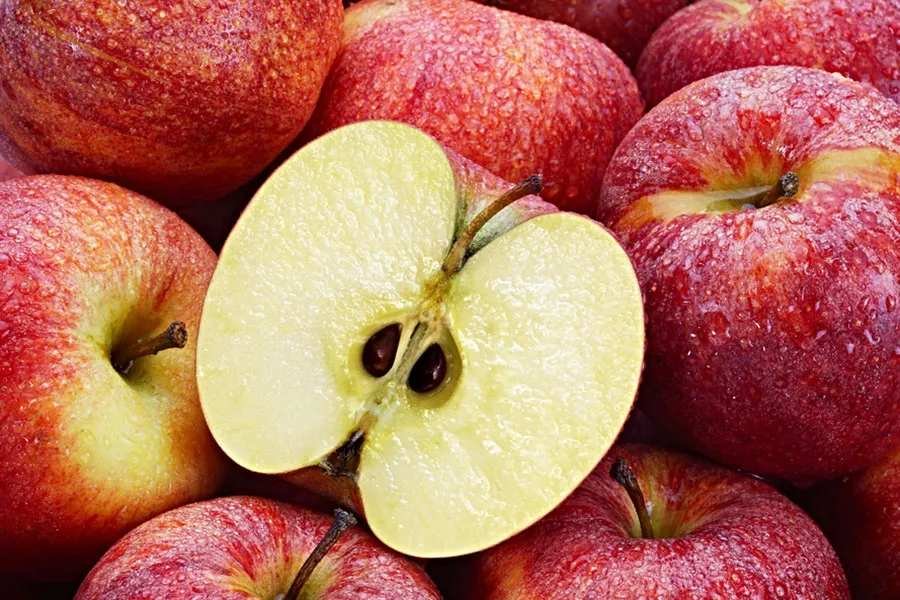
14. Raw Elderberries
When fully ripe, elderberries offer vitamin C, antioxidants, and anti-inflammatory benefits. But unripe elderberries harbour a glycoside called sambunigrin. When ingested, this releases hydrogen cyanide, causing vomiting, diarrhoea, and other symptoms. Commercial preparations use ripe berries and eliminate toxins. But avoid snacking on raw elderberries harvested in the wild unless completely ripe and cooked thoroughly.
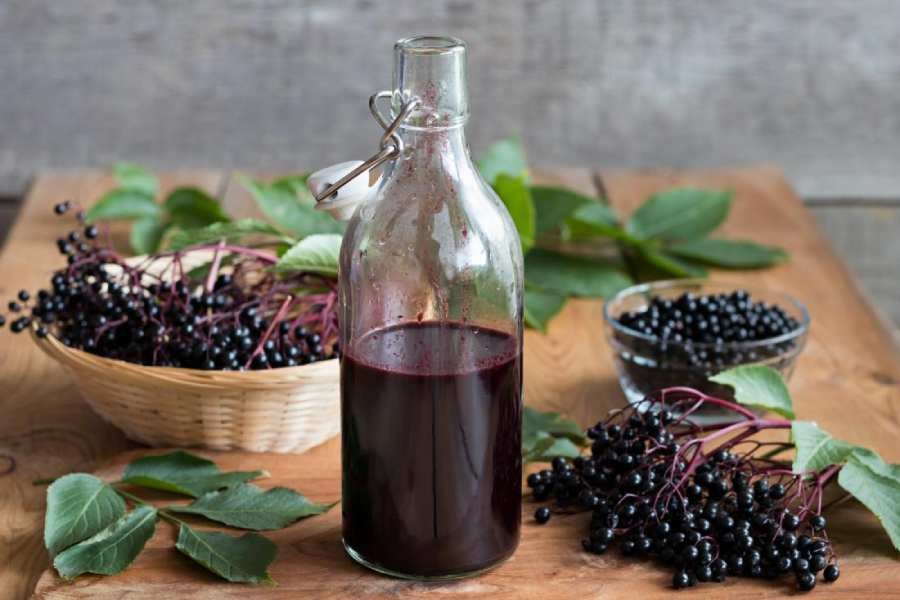
15. Bitter Apricots & Peach Pits
Apricot and peach pits contain a compound called amygdalin, which breaks down into hydrogen cyanide. Most commercial varieties have low amygdalin content in the fleshy fruit. But wild apricots and peaches have higher risks, as do their seeds and leaves. Never crack open the hard pits or ingest them, and avoid eating wild stone fruit seeds. Stick to the fleshy fruit, and spit out the pit.
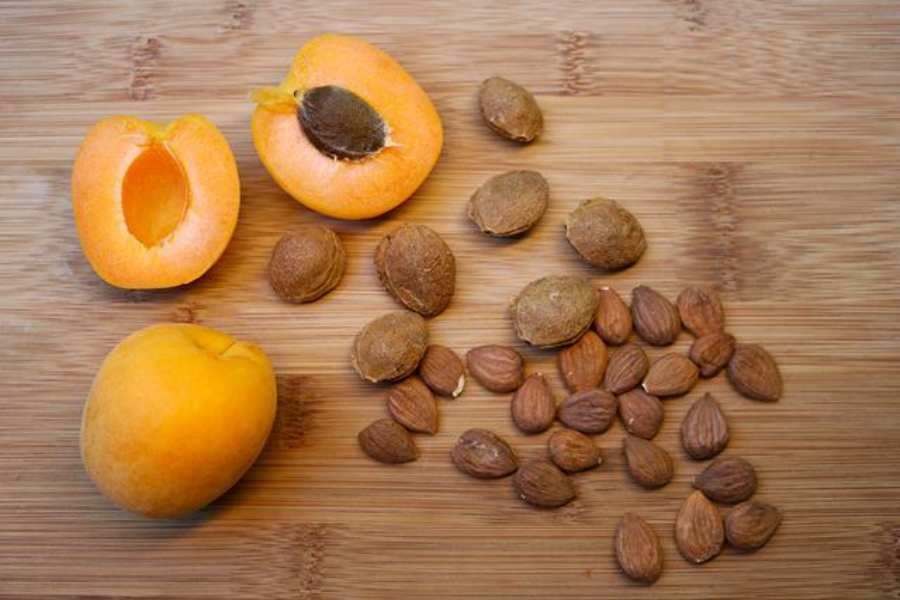
16. Raw Honey
Honey is beloved for its sweet flavour and antimicrobial properties. However, raw, unpasteurized honey can harbour botulism spores. Infants under one year are especially vulnerable to botulism poisoning, which causes muscle weakness and even death due to paralysis. Children and pregnant women should also avoid raw honey. Buying pasteurized preparations eliminates this risk while preserving benefits.
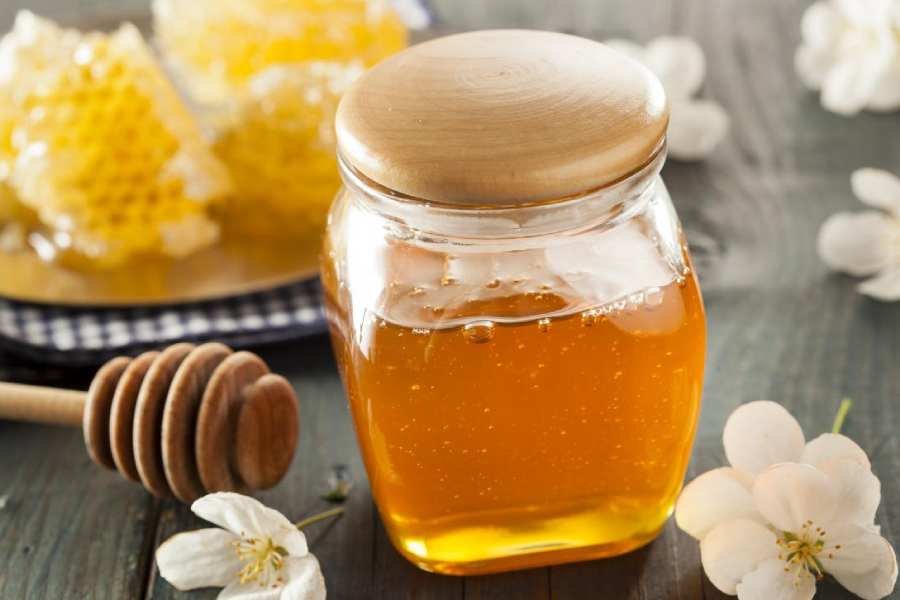
17. Cashew Nuts
Cashews contain a chemical called anacardic acid in their shell oil. This can seriously irritate the skin and gastrointestinal tract if consumed. Properly processed and roasted cashews have eliminated the toxins. But “raw” cashews are still slightly steamed to wash away caustic oils. Enjoy properly roasted or steamed cashews, and avoid chewing the shell.
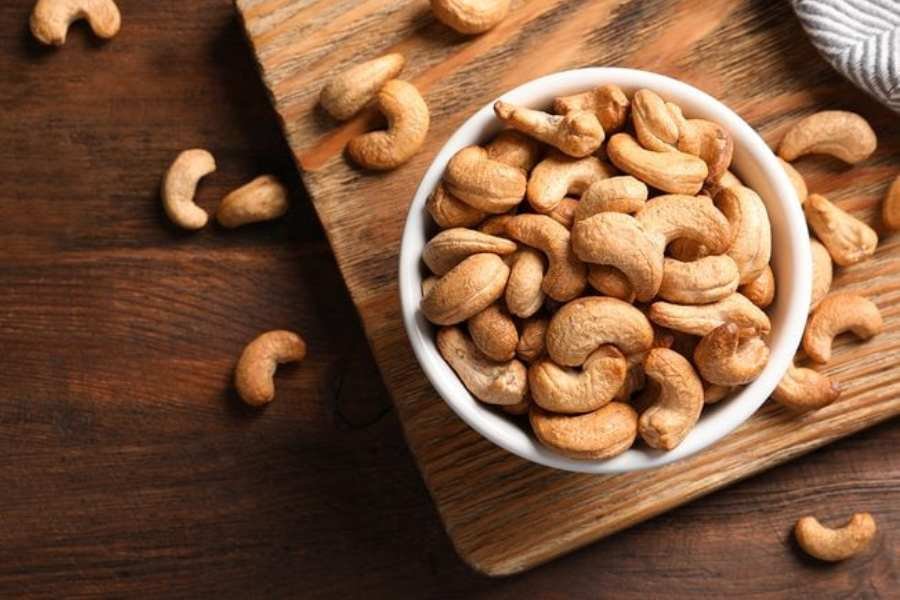
18. Incomplete Dried Beans
Kidney, black, pinto and other dried beans provide plant-based protein. But the raw beans contain hemagglutinin lectins, which bind to sugar receptors and damage the gut lining. This leads to nausea and vomiting. Lentils don’t harbour lectins, but other beans should be soaked and then boiled for at least 10 minutes to destroy lectins completely. Fully cooked beans harness their nutrition in a safe manner.
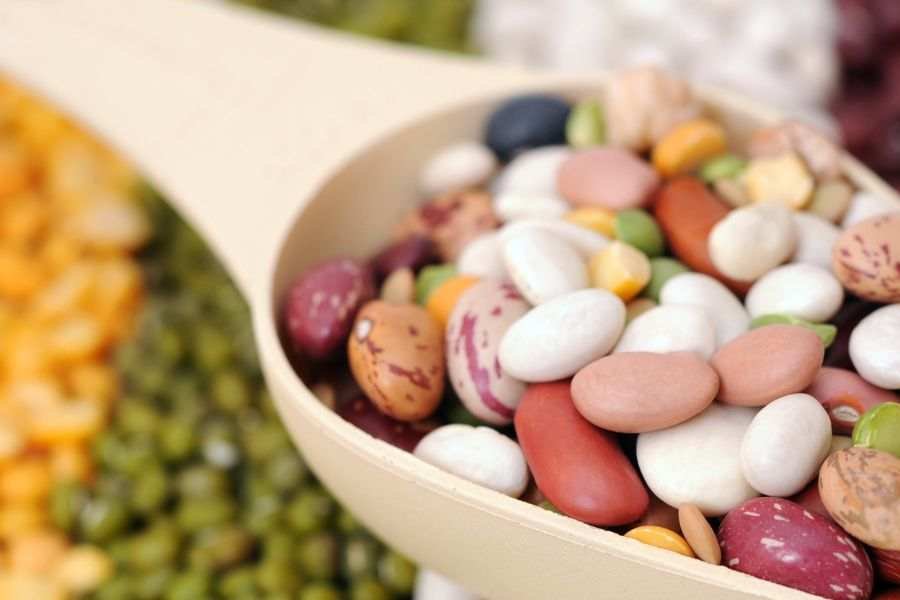
19. Bitter Almonds
Compared to sweet almonds, bitter almonds naturally contain a dangerous compound called glycoside amygdalin. When ingested, this breaks down into deadly prussic acid or hydrogen cyanide. Processed bitter almonds sold in stores are safe to eat. But it only takes a few dozen raw bitter almonds to cause serious harm. If you forage almonds, stick to the sweet variety and avoid any with a bitter taste.
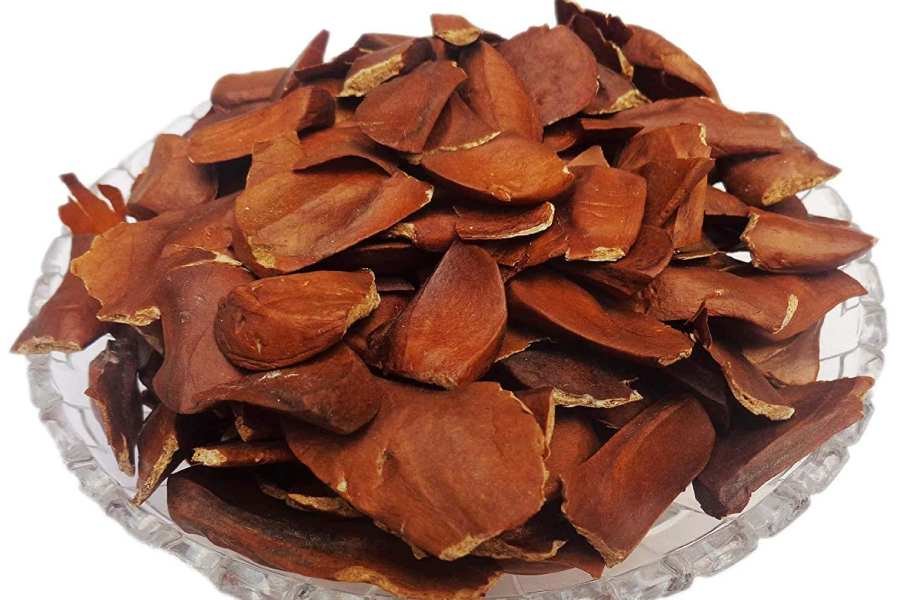
20. Scallions
Scallions offer flavour and crunch to many dishes. However, eating large amounts of raw scallions on an empty stomach can potentially cause hemolytic anaemia. Compounds in raw scallions damage red blood cells in those with a genetic vulnerability. Cooking neutralizes the culprits. Anyone with G6PD deficiency should avoid excessive raw scallions, though small amounts are likely safe.
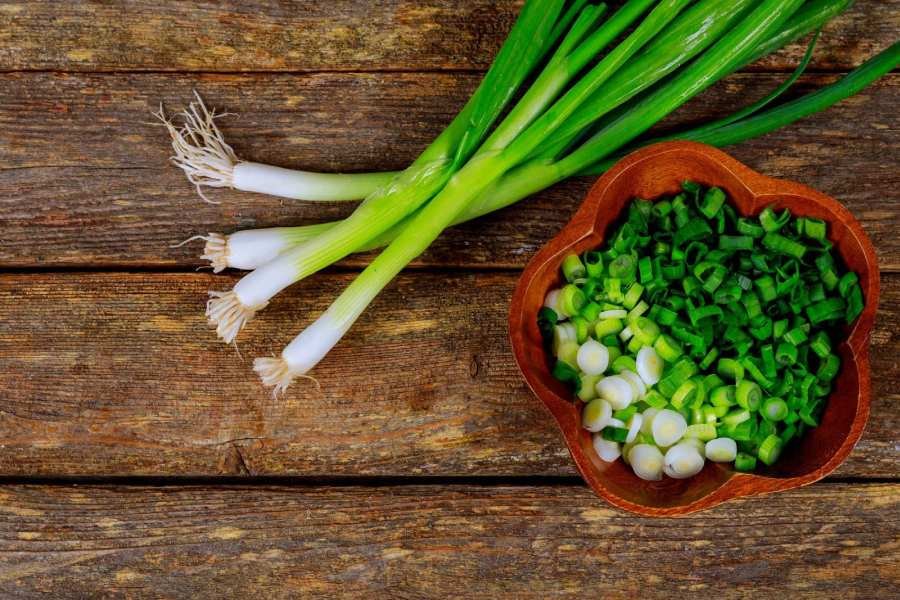
21. Green Tomatoes
Ripe tomatoes provide healthy carotenoids like lycopene. However unripe green tomatoes contain toxins like solanine, chaconine, and tomatine. Chaconine and tomatine can irritate the stomach, while solanine targets the neurological system. Never eat tomato plant leaves or stems either. Allow tomatoes to fully ripen to a rich red colour on the vine before eating to avoid issues.
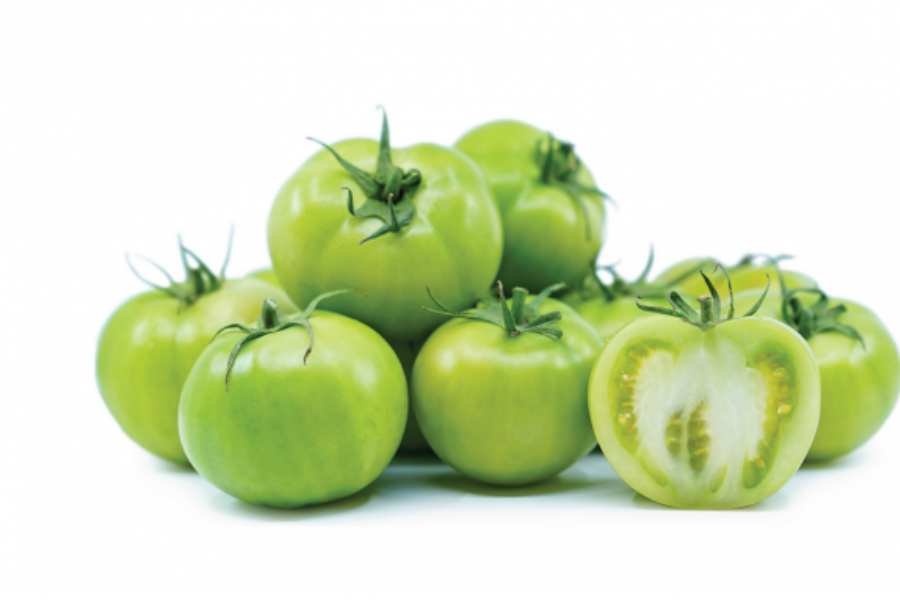
The foods we enjoy every day seldom pose risks when handled properly. However certain raw ingredients, Incorrect parts, or excess intake can be extremely dangerous. Being aware of these risks allows us to harness the nutrition of wholesome foods safely. When preparing any dish, take adequate precautions regarding ingredients, portions, and cooking to ensure the best outcome for health.

Leave a comment